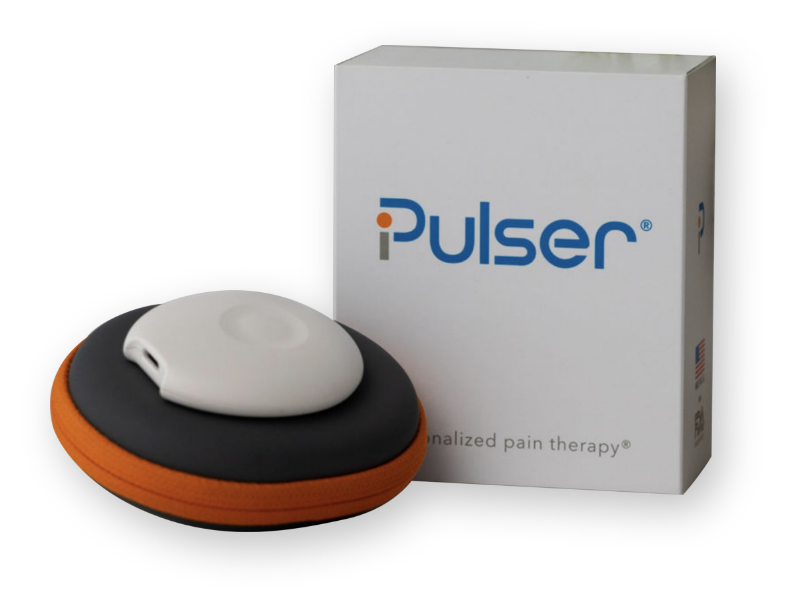Experiencing chronic stress can lead to a whole slew of health situations. While being stressed out you may have experienced times where you struggled to calm yourself down or focus on other things. You may have even become physically ill after, with a tension headache or upset stomach. Stress can manifest itself physically. Our body creates a hormone called cortisol when we encounter stress. During this process, cortisol helps the body in positive ways to make quick decisions. It turns off certain receptors so the body can focus on the difficulty at hand. Activating this hormone too often and for too long can cause physical damage to the body.
What Are The Warning Signs Of Stress?
If you have experienced stress for any prolonged period of time you may have felt tension manifest itself in your body. Elevated heart rate, blood pressure, and anxiety are the most common ways stress expresses itself physically. Too much stress can become very taxing. Some people experience illness, heart attacks, and even death from too much distress. Having stress from time to time is a normal human encounter.
Life is very difficult at times, but stress isn’t always a bad thing. You use the flight or fight response to narrow your focus and help react to danger in a quick manner. Combined with adrenaline, these hormones can help the body survive a dangerous situation. Stress can help us analyze, prepare, make decisions, and focus our intentions. If this response occurs too often you do not have the opportunity to normalize the cortisol levels. The elevated cortisol could inflict damage on the body. These are some warning signs to look for:
- High Heart Rate
- Elevated Blood Pressure
- Stomach Upset
- Chest Pain
- Dry /mouth
- Excessive Sweating
- Loss of Focus
- Lack of Desire to Do Enjoyable Things
- Headaches
- Jaw Pain
- Difficulty Swallowing
- Tense Muscles
- Shaking
- Racing and Confusing Thoughts
- Memory Loss
- Substance Abuse
- Social Withdrawal
Can Stress Cause Physical Pain?
Stress can cause physical pain. You may experience headaches, stomach cramps, and chest pain when under intense pressure. It can affect your entire body. For some people, it manifests through the skin. You may break out with acne or dry, scaly patches. Stress can also affect the immune system by decreasing your ability to fight off foreign invaders. It not only hinders your body but hurts your mind. Chronic distress causes mental anguish and often leads to depression.
Can Stress and Anxiety Cause Pain?
Stress and anxiety often go hand in hand. Chronic stress results in anxiety which can cause distress throughout. Anxiety can create physical symptoms. Stomach upset, heart palpitations, and sleep loss are often experienced by people who struggle with this. You may even go on to develop:
- Insomnia
- Heart Disease
- Obesity
- Inflammatory Issues
- Eating Disorders
- Gastrointestinal Issues
- Depression
- Asthma
- Mental Disorders
- Panic Attacks
- Phobias
- Dementia
- Advanced Aging
- Premature Death
What Are The Three Stages Of Stress?
Hans Selye was an endocrinologist who studied the body’s response to stress. During the early to mid 20th century he was a pioneer in his field. He developed The Three Stages of Stress which is:
- Alarm Reaction - This is the flight or fight stage. This is helpful to the body in short spurts as it allows for quick responses. Integrating relaxing herbs like chamomile and lavender are helpful in this stage.
- Adjustment - Your body transitions to maintain cortisol levels. Your adrenals activate and other organ systems begin to take on effects. Adaptogenic supplementation is recommended.
- Exhaustion - When adrenal fatigue sets in, it causes a significant decrease in immune function as well as low energy. It is common to also experience illness, depression, and anxiety. Using supplements that help restore energy levels and immunity are very important.
Hans Selye developed this general adaptation syndrome stress module with coordinating herbal treatments. He would use herbal supplements like ashwagandha, nettles, and lemon balm to help reduce stress symptoms. Today many people utilize essential oils to decrease stress and anxiety.
What Does Stress Pain Feel Like?
Stress pain feels unsettling and anxiety provoking. You may find yourself sweating and pacing while finding it difficult to cope and relax. You may feel a tightness in your chest along with the sensations of being unable to swallow. Your arms and legs may feel shaky and dizzy and some people even faint.
Many people also become irritable and some develop panic attacks. Panic attacks are emotional episodes of intense fear accompanied by physical symptoms like shortness of breath and heart racing. If you have ever experienced a panic attack you know how debilitating they feel. This sudden episode of anxiety can hit you out of nowhere. Many people attach these traumatic attacks to certain people or events in their life creating even more anxiety. Stress can affect the body in many ways.
Where Does Stress Pain Hurt At?
Stress pain is felt throughout the body. Many people report carrying their tension in their jaw, chest, head, shoulders and back. Everyone is different and it can affect people differently. Stress can also result in muscle knots and tight muscles. You may tense up your shoulders which causes tightness throughout the back. It’s very common for people to develop an injury while being stressed.
If you have TMJ disorder this can be the result of chronic stress affecting your body. Tightening your jaw while stressed may result in tension headaches as well as damaged teeth. People who are stressed often report trouble sleeping. Lack of sleep leads to many damaging effects on the body.
What Can Stress Do To A Woman's Body?
As mentioned previously, cortisol hormones release into the body when you become stressed. Women’s bodies are very easily influenced by hormones. The potential for hormones to become imbalanced is always present. Chronic stress can create this imbalance in a woman's body that may interfere with fertility, menses, metabolism and much more. It can also decrease your sex drive, cause depression and heart issues. Chronic stress can create an imbalance within your body that is difficult to correct as the body is so reliant on everything working harmoniously. Once one body system receives damage or insufficient care it causes other systems to receive similar messages or overcompensate.
How Can I Relax?
To combat fear, anxiety, and stress, many people turn to exercise. If you do not do so already you may want to consider incorporating a healthy exercise regimen. Some people include yoga and meditation. There are some very relaxing exercises that you could add to your daily routine. This is one helpful exercise you can try:
- Select an area you find peaceful and relaxing. You could sit or lie down for this exercise. Begin by breathing in and out slowly.
- Every other breath you can hold for five seconds, then slowly release out of your mouth.
- Close your eyes. Now imagine a scanner that is going to scan your entire body to make it relax. The scanner is going to start at the top of your head. You are going to feel your forehead relax. Taking a nice deep, slow, calming breath. In through your nose and slowly out through your mouth.
- As the scan continues, it relaxes your eyes. It moves onto your jaw. You begin to feel your jaw release and relax.
- It goes down your neck and releases your shoulders. Continue this visual until you call out and release all of your body parts. At the end of this exercise, you should feel much more relaxed, calm, and less anxious.
In addition to exercise, evaluating your diet is very beneficial. There are many foods linked to stress, and it’s negative effects on the body. Caffeine, sugar, and processed food are not helpful in reducing the toll it takes on you. Although many people use delicious food to help cope with stress this is not a healthy way to manage stress. Managing stress is not easily done. Most people struggle with it, and it is very apparent in our society today. Being patient with yourself is important as you grow to learn new ways of dealing with life.
Resources:
https://www.webmd.com/balance/stress-management/stress-symptoms-effects_of-stress-on-the-body
https://health.clevelandclinic.org/7-strange-things-stress-can-body/
https://www.healthline.com/health/physical-symptoms-of-anxiety
https://courses.lumenlearning.com/suny-monroecc-hed110/chapter/general-adaptation-syndrome/
https://my.clevelandclinic.org/health/articles/11874-stress
https://www.womenshealth.gov/mental-health/good-mental-health/stress-and-your-health \








